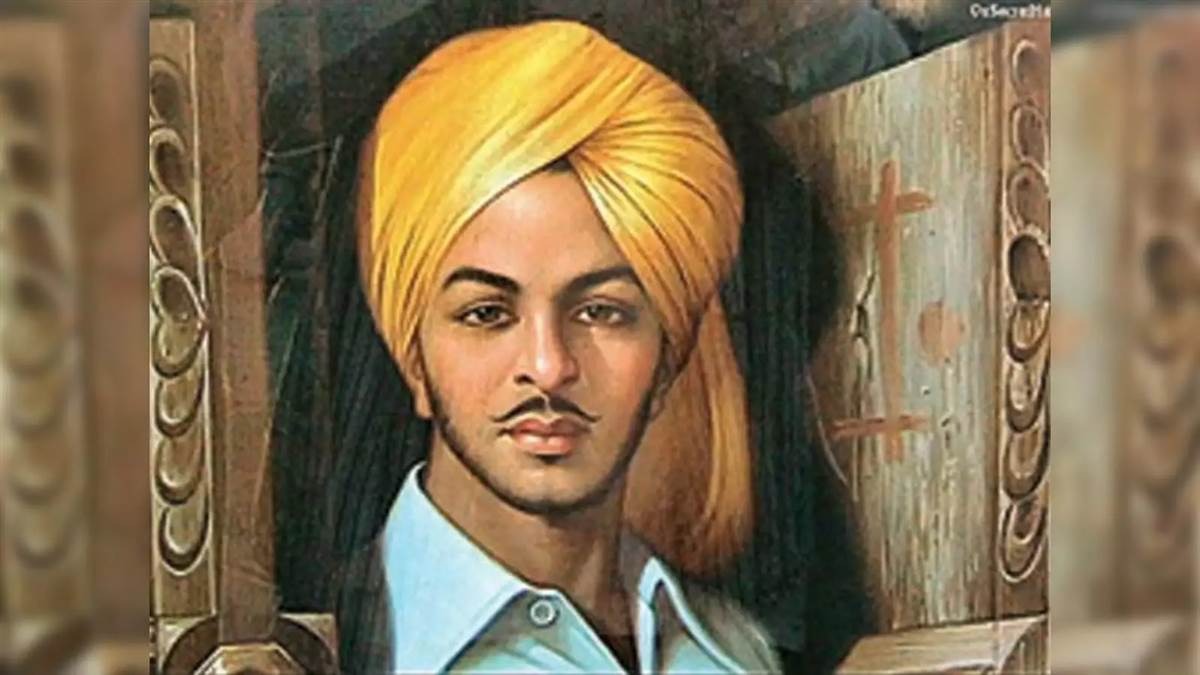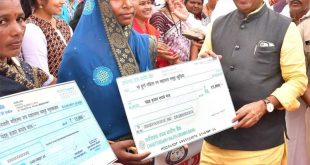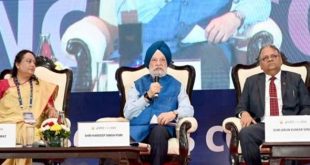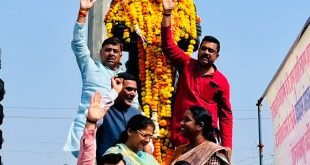When India was stuck in the chains of slavery, Bhagat Singh's father was born. Mata Vidyawati was born on 28 September 1907 in the house of Kishan Singh in Chak No. 105 village Banga, District Lyallpur (Pakistan). Bhagat Singh's ancestral village Khatkar Kalan is situated in Nawanshahr (Punjab). Shaheed-e-Azam Bhagat Singh, who broke the chains of slavery, got freedom from his family. Bhagat Singh's father Kishan Singh, uncle Ajit Singh and uncle Swaran Singh also spent time in jails, struggling to realize the dream of an independent country against British rule. On the day Bhagat Singh was born, his father Kishan Singh got bail from Lahore jail and uncle Ajit Singh was released from jail. This was the same time when his grandmother used to call Shaheed Bhagat Singh as 'Bhaganwala'.
When Bhagat Singh was young, his uncle's gun once fell into his hands. Then he asked his uncle what happened to it? Uncle said that they will drive away the British with this. That little boy ran towards the fields. Uncle also went to the fields running behind him. He saw that the child was digging a pit and the gun started falling into it. Uncle asked what is he doing? The child replied that he would bury guns all over the fields, so that the revolutionaries could use them to drive away the British.
The bloody tragedy of Jallianwala Bagh had a deep impact
Bhagat Singh received his primary education from Lyallpur Primary School and joined DAV School, Lahore in 1916–17. This was the school which the British called the 'nursery of anti-state activities'. While studying in this school, he learned languages like English, Urdu and Sanskrit and from time to time also acquired knowledge of Gurmukhi, Bengali and Hindi languages. The bloody massacre of Jallianwala Bagh on April 13, 1919 had a deep impact on the mind of Sardar Bhagat Singh. This incident filled their hearts with hatred towards the British. In 1921, Bhagat Singh left his studies midway and started actively participating in the ongoing non-cooperation movement against the British government.
Left home due to insistence on marriage
Now the 'Bhagwala' of the house had become the boy and relations started coming for marriage. Grandmother loved Bhagat Singh very much and wanted to see her grandson's life progress, but he was determined to sacrifice his bride for the sake of the country. When his family insisted on marriage, he left home and went to Kanpur. After changing his name there, he worked in Pratap Press for some time and then in 1925, due to his grandmother's illness, he had to return to his village in Lahore. After this, he along with his colleagues formed Naujawan Bharat Sabha.
Avenging the death of Lala Lajpat Rai
The independence movement was gaining momentum in India. Seeing this movement gaining momentum, on 30 October 1928, a seven-member delegation of the British government reached Lahore under the leadership of Simon. Naujawan Bharat Sabha took out a procession against this commission and raised slogans of Simon Commission go back. This delegation of the British government was called Simon Commission. The people of India protested against this with black flags under the leadership of Lala Lajpat Rai ji. The police kept trying to disperse the crowd but the crowd turned violent. British Superintendent Scott ordered lathicharge on those taking part in this protest. Lala Lajpat Rai died after getting injured by this lathi charge. His death was avenged by Bhagat Singh, Rajguru, Sukhdev and Jai Gopal by shooting British police officer Saunders.
throwing a bomb in the assembly
Bhagat Singh was not in favor of bloodshed. They wanted to protest against the British rule by throwing fake bombs in the assembly against the People's Protection Bill and Trade Dispute Bill. That is why Bhagat Singh and Butkeshwar Dutt threw bombs, threw pamphlets and raised slogans of 'Inquilab Zindabad' in the Central Hall of the Central Assembly on 8 April 1929. The entire hall was filled with smoke. He could have run away if he wanted, but he willingly got arrested by the police. On June 6, 1929, Bhagat Singh and Batukeshwar Dutt said in a statement in the court that by revolution we mean that the existing structure based on oppression must be changed and fundamental change is very necessary. It is the duty of those who understand this to rebuild a society based on socialism. After his arrest, Bhagat Singh got the opportunity to pursue further studies during his two years in prison. An example of this is the jail diary, which mentions about 150 books read by him.
death penalty
Bhagat Singh had written in his last letter before hanging that friends, it is natural to desire to live, I do not want to hide it, but I can remain alive only on one condition, that is by being imprisoned or held hostage. Don't Be Sardar A tribunal was constituted by the British Government to hear the case against Bhagat Singh and his associates and it had three judges as members. This tribunal delivered its verdict on October 7, 1930, and fixed March 24, 1931, as the date of execution of Bhagat Singh, Sukhdev and Rajguru. From the morning of 23 March, a crowd of people started gathering outside the jail gate. Fearing a public revolt, the British government, in a devious move, planned to hang him on 23 March 1931 at 7:30 pm. When the police came to take Bhagat Singh and his comrades to the gallows, Bhagat Singh was reading Lenin's biography. Bhagat Singh said wait, one revolutionary is meeting another revolutionary. After this, Bhagat Singh turned the page of the book and walked away with the policemen. The turned page of the book was saying that this struggle is still incomplete, which will be completed by the next generation. His death awakened the feeling of patriotism in the entire country. Martyr Bhagat Singh is still alive in our hearts. Understanding our rights and duties towards the country, we all should resolve to follow the goals of Shaheed-e-Azam Sardar Bhagat Singh Ji. His passion to die for the motherland will always inspire his countrymen. While going to be hanged, Bhagat Singh, Sukhdev and Rajguru were all singing this:
Even if you die, the heart will come out from the heart.
The fragrance of my soil will also come from my soil.
 look news india
look news india



